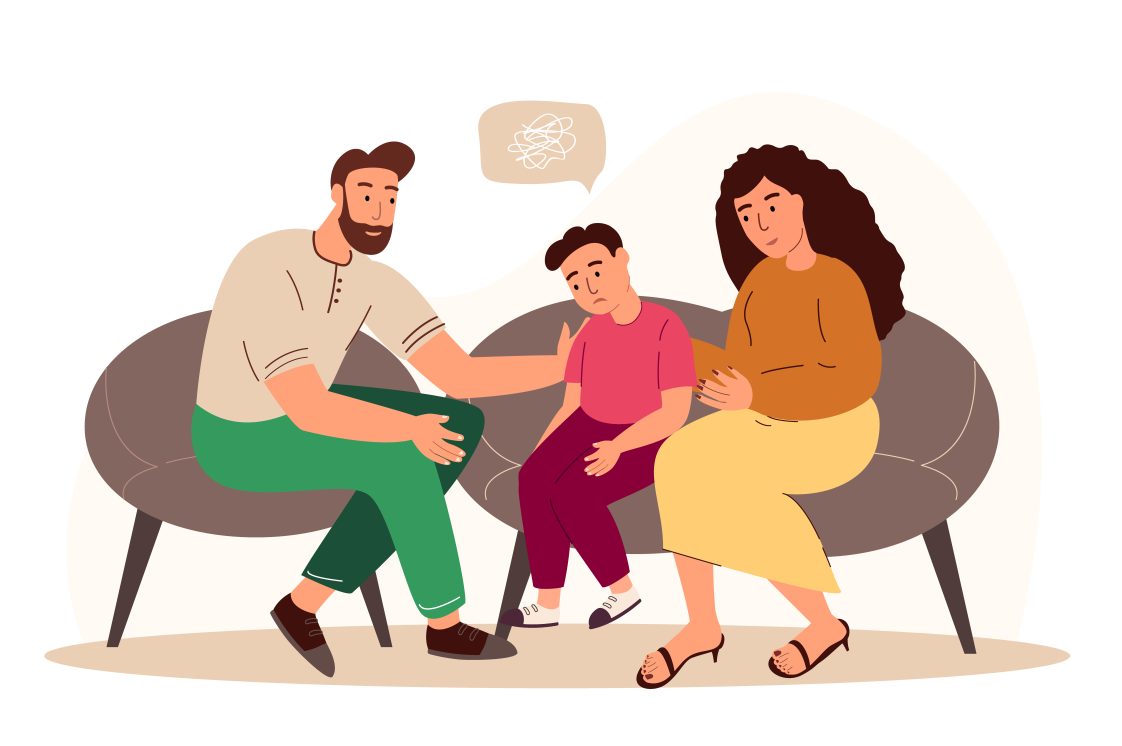Health

Youth often believe that vaping can reduce their stress or anxiety. New studies are uncovering that youth start vaping not just because of peer pressure but specifically to decrease stress, depression, anxiety, and feelings of being overwhelmed.
Vaping & Mental Health: What Do We Know?
Here are the top eight findings from research exploring the connections between vaping and mental health in adolescence:
- The two most common reasons that youth start vaping are stress relief and peer influence.
- Youth with mental health problems are more likely to vape.
- Youth who have been diagnosed with depression or anxiety are more likely to continue to vape longer, which puts them at risk for nicotine dependency.
- Youth who vape THC are at a higher risk of developing cannabis use disorder because of the potency of the THC concentrate used in devices.
- Youth who already suffer from panic disorders may have increases in panic attacks as they use higher concentrations of nicotine.
- Vaping nicotine is worse for youth with ADHD because nicotine is a stimulant and hits the same dopamine receptors in the brain as Adderall, Vyvanse, and Concerta. While nicotine may appear to help youth concentrate better, it is short lived and may cause nicotine dependency.
- When surveyed, youth who vape nicotine are more likely to use other substances, like alcohol and marijuana, then nonusers.
- Nicotine withdrawal symptoms include anxiety, low mood, irritability, and difficulty concentrating. These symptoms can begin to occur as soon as an hour without nicotine.
Starting the Conversation
 Parents and youth need to have open, nonjudgmental communication about their health and well-being (for help with getting started, see “Helping Parents Understand Vaping: Conversation Starters” on the Alabama Extension website at www.aces.edu). The ability to talk about stress, emotional lows, and other mental health issues might reduce the risk of their using substances to cope. Helping youth understand that everyone has bad days and normalizing some levels of stress, anxiety, or sadness when experiencing disappointment, are helpful. You can start the conversation directly, but a more natural discussion will increase the chance that your teen will talk and listen.
Parents and youth need to have open, nonjudgmental communication about their health and well-being (for help with getting started, see “Helping Parents Understand Vaping: Conversation Starters” on the Alabama Extension website at www.aces.edu). The ability to talk about stress, emotional lows, and other mental health issues might reduce the risk of their using substances to cope. Helping youth understand that everyone has bad days and normalizing some levels of stress, anxiety, or sadness when experiencing disappointment, are helpful. You can start the conversation directly, but a more natural discussion will increase the chance that your teen will talk and listen.
Dealing with Stress and Feeling Overwhelmed
As parents and guardians, it is important to help youth find ways to manage their mental health. The strategies and habits you help them form in adolescence can carry them through adulthood and help keep them from substances that cause addiction. Here are ten ways to deal with stress, sadness, and feeling overwhelmed.
1. Social Support. Social support is essential. Spending time with family and friends who can have a positive impact on their life is a great way to reduce stress and improve mood. It may be helpful to encourage them to connect with relatives, family friends, teachers, faith leaders, coaches, or counselors who are good at helping others process emotions.
 2. Deep Breathing. Deep breathing exercises can help reduce stress and anxiety by calming the body and mind. Encourage youth to learn to take slow, deep breaths, counting to four on the inhale and then again on the exhale. You can also introduce them to the app called Breathwork. Vaping and smoking mimic this type of breathing. So, instead of inhaling a substance while breathing, help them to understand that deep breathing alone can be helpful.
2. Deep Breathing. Deep breathing exercises can help reduce stress and anxiety by calming the body and mind. Encourage youth to learn to take slow, deep breaths, counting to four on the inhale and then again on the exhale. You can also introduce them to the app called Breathwork. Vaping and smoking mimic this type of breathing. So, instead of inhaling a substance while breathing, help them to understand that deep breathing alone can be helpful.
3. Meditation. Meditation can help calm the mind and reduce stress. Meditation may look different for youth than it does for adults. Encourage your teen to learn about mindfulness through age-appropriate apps, videos, or books for a relaxed, calmer mind.
4. Spirituality. If your family is religious or spiritual, make sure that youth form their own relationship with that practice. If there is a community of other people who engage in your religion or spiritual practice, make sure that youth are also connected to trusted adults and other youth who can have a positive impact on their life.
5. Creative Expression. Engaging in creative expression through art, music, poetry, theater, crafting, etc. can be a great way for youth to express their emotions to reduce stress. Encourage them to explore creative interests and help them find outlets to be in community with others interested in the same creative process.
 6. Adequate Sleep. Sleep is essential for reducing stress and improving mood. Encourage youth to have a regular bedtime so they get enough sleep. Remind them to turn off or put away electronics at least one hour before bedtime so they can mentally wind down.
6. Adequate Sleep. Sleep is essential for reducing stress and improving mood. Encourage youth to have a regular bedtime so they get enough sleep. Remind them to turn off or put away electronics at least one hour before bedtime so they can mentally wind down.
7. Movement. Exercise is another way to reduce stress and improve mood. Youth can walk, run, play a community sport for fun, dance, or ride a bike. If a gym membership is an option, encourage them to go or sign them up for a specific fitness course (e.g., boxing, hip-hop dance fitness).
8. Reading. Reading a book or listening to a good audiobook is a good way to improve mood, reduce stress, and help youth think about other things outside their life. Help them pick a book that is not too serious and can capture their interest. Studies have found that just 30 minutes of fun or interesting reading per day can help reduce stress.
9. Find Ways to Laugh. Watching comedies, listening to comedians, and scrolling through funny online video content can help youth smile and laugh. We all know that laughter is good, but even studies show that laughter can improve depressed moods, soothe tension, and relieve stress hormones.
 10. Connect with a Health Care Provider. Pediatricians, counselors, and therapists are important resources for you and your teen to consider. Pediatricians can talk to your child about physical and mental health issues and make recommendations. Also, if you think peers around them are vaping or if you think they may start, you may want to ask the doctor to talk to your teen about the risks of using nicotine and marijuana. Therapists can also support families dealing with emotional or mental health issues or addiction. Therapy can take place either online or in person and is available at various price points.
10. Connect with a Health Care Provider. Pediatricians, counselors, and therapists are important resources for you and your teen to consider. Pediatricians can talk to your child about physical and mental health issues and make recommendations. Also, if you think peers around them are vaping or if you think they may start, you may want to ask the doctor to talk to your teen about the risks of using nicotine and marijuana. Therapists can also support families dealing with emotional or mental health issues or addiction. Therapy can take place either online or in person and is available at various price points.
Conclusion
It is important to encourage your child to develop healthy coping skills and seek support when they are feeling stressed, depressed, or anxious. Developing healthy coping skills might help prevent them from vaping or using other substances to cope with life’s challenges.
 Adrienne Duke Marks, Extension Specialist, Associate Professor, Family and Child Development; Claire Watts, Undergraduate Research Assistant; and Helen Jones, former Regional Extension Agent, all with Auburn University For more
Adrienne Duke Marks, Extension Specialist, Associate Professor, Family and Child Development; Claire Watts, Undergraduate Research Assistant; and Helen Jones, former Regional Extension Agent, all with Auburn University For more
New March 2024, Helping Parents Understand Vaping: Information & Strategies to Support Adolescent Mental Health, FCS-2798

